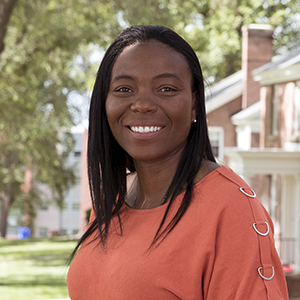"Chirality-, Ionic-, and Spin- Induced Electronic Transfer in Organometal Halide Semiconductors" by Luisa Whittaker-Brooks

Abstract
Organometal halide semiconductors (OMHS) while highly desirable for a host of applications, present several challenges that remain unresolved, including the ability to control the assembly of the organic and inorganic components and interfaces at the molecular level (orientation and mode of attachment), matching of phonon band structure in inorganics with discrete vibrations within the molecule, and tuning energetic offsets for effective charge and spin transfer. Each of these parameters ultimately govern charge transport, the preservation of coherence, and energy transfer.
In this talk, I will present fundamental guidelines for the design of well-defined OMHS heterostructured materials with controlled morphology and interfaces that serve as conduits for deterministic and coherent spin and charge transfer. I will divide my poster into two different sub-topics, i.e., (1) how matching phonon structure across interfaces through control of mode and site of attachment of molecules to surfaces allow for efficient coherent charge transfer and (2) how topologically protected electronic states can be defined by 2D assembly of pi-conjugated molecules and layered organic-inorganic hybrid materials on surfaces for spin-coherent electronic transport. Here, I will emphasize the role that dimensionality plays in modulating the spin and charge properties of organic-inorganic hybrid structures. The common thread between these two sub-topics is the fundamental understanding of energy and charge transfer at the interfaces of organic-inorganic hybrid materials to control charge (spin) injection, transport, manipulation, and detection with implications for photovoltaics, energy storage, quantum electronics, and spintronics.
Biography
Luisa Whittaker-Brooks is an associate professor in the department of chemistry at the University of Utah. Her research centers on developing scale-bridging molecular design approaches for: (i) defect manipulation through chemical design of 2D layered metal chalcogenide nanostructures; (ii) elucidation of spin- and charge-transport dynamics at organic-inorganic interfaces; (iii) realization of topological states in 2D single-crystalline coordination polymers and small organic molecules; and (iv) understanding the effects of covalent and non-covalent interactions on excimer formation.
Seminar sponsored by the Department of Chemistry and Biochemistry.